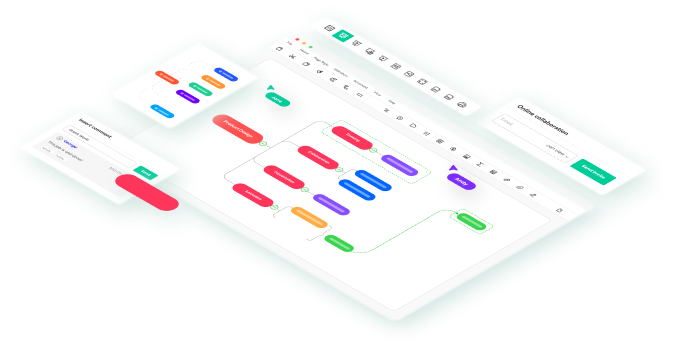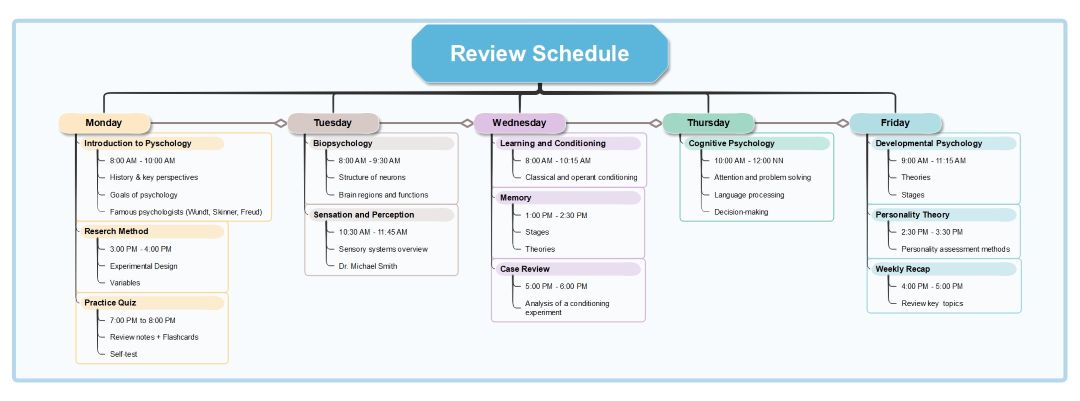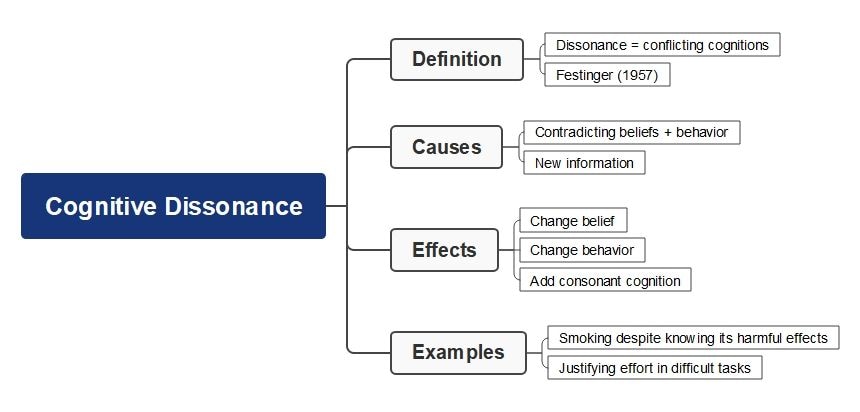Psychology helps us unlock the secrets of human behavior, emotions, and thought. Yet mastering it takes more than memorizing theories—it requires curiosity, structure, and strategy.
Discover smarter ways to study psychology and truly understand how the human mind works.

In this article
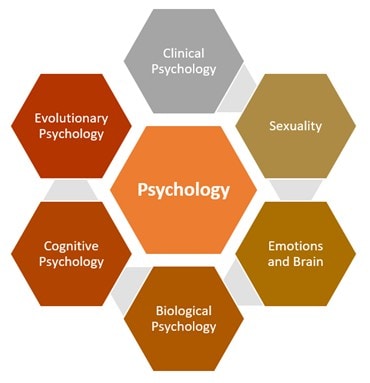
Why Psychology Demands Smarter Study
Psychology studies the human mind and behavior in all its complexity. From memory to emotion to social interaction, psychology covers a vast territory. To truly learn it, you need more than memorization.
The challenge is that many topics overlap—neuroscience informs behavior, cognition links to perception, and social psychology connects to development. It’s easy to feel scattered. But with the right techniques, you can build an integrated understanding.
This article shows how to study psychology effectively in 2025, with six key strategies, recommended books, student stories, and mind mapping tools to turn confusion into clarity.
How To Study Psychology Effectively
Below are six ways to study psychology effectively.
Pen Down Your Notes
Writing notes forces engagement. When you paraphrase, summarize, and reorganize ideas, you process material more deeply than by passive reading. This helps solidify memory and foster “thinking in psychology.”
Strategies for note-taking:
- Use concept headings (e.g., “Memory,” “Behaviorism”)
- Write in your own words, then refine.
- Leave margins for questions or connections.
- Use bullet lists or numbered steps for theories.
Example: While studying classical conditioning, note: stimulus → response → pairing → extinction. Annotate one real example (Pavlov’s dogs or salivation) to anchor the theory.
Schedule Your Study Time
Psychology is cumulative. You can’t cram chapters of memory, cognition, and methods overnight. A regular schedule prevents overload and supports spaced repetition.
Here’s a sample weekday review schedule for psychology students. It’s designed for balanced learning — about two to three hours per day, with time for theory, review, and reflection.
How to schedule smartly
- Break down the syllabus into weekly modules.
- Designate “light days” (review or flashcards) and “deep days” (new content).
- Use timers (e.g., Pomodoro) to maintain focus.
- Reserve short review sessions before quizzes or exams.
Pro tip: Make your schedule visible (wall calendar or app). Seeing progress motivates you to stick to it.
Create a Mind Map for Each Topic
Psychology includes complex interlocking theories, such as how cognitive biases affect decision-making and how perception links to memory. Mind maps let you see connections visually rather than in linear notes.
How to build effective mind maps:
- Put the main topic at the center.
- Branch into subtopics.
- Under each branch, add examples, experiments, or researchers.
- Use icons, colors, and arrows to show relationships.
Create a Mind Map Using EdrawMind
Mind maps become your knowledge scaffold—return to them to refresh connections rather than re-reading entire chapters.
To speed up this process, try leveraging Wondershare EdrawMind, which lets you:
- Use AI to auto-generate branches from your notes.
- Attach supporting images or paper links.
- Share and edit with peers in real time.
- Export as PDFs or slides for review.
Take Practice Quizzes Frequently
Retrieval practice (quizzing yourself) is one of the most powerful learning tools. It strengthens memory more than re-reading. In psychology, quizzes help embed terminology, experiment names, and theory details.
How to quiz yourself effectively:
- Use flashcards (Anki, Quizlet, etc.) for terms and definitions.
- Convert each section into short multiple-choice or free-response questions.
- Simulate exam conditions: timed, no notes.
- After each quiz, review mistakes and mark weak topics for extra review.
💡 Many students in psychology forums report that weekly mini-quizzes improved their retention and confidence before exams.
Think of Real Examples for Abstract Concepts
Psychology is full of theories that sound abstract (e.g., “cognitive dissonance,” “operant conditioning,” etc.). Real-life examples anchor these theories and help recall.
How to apply examples:
- Relate to everyday life, such as using reinforcement when training pets (operant conditioning).
- Use historical experiments (Milgram, Stanford Prison, etc.).
- Describe social or personal scenarios (peer pressure, stereotypes, etc.).
- Explain a theory to a friend using an example.
Sample exercise: While studying cognitive dissonance, think of times you changed beliefs after conflicting behavior. Write it out, then link to Festinger’s theory.
Study the Toughest Topic First
Psychology exams often include a mix: theory, methods, and statistics. The hardest topics (usually statistics or experimental design) demand more energy and focus. Doing them early ensures they aren’t skipped or poorly understood.
How to approach tough topics:
- Begin your study session with hard topics.
- Break them into smaller parts and master one piece at a time.
- Revisit them periodically so comprehension deepens.
- Reward yourself after completing difficult chunks.
Doing your hardest work while you’re most alert maximizes retention and reduces procrastination.
Recommended Books for Psychology Students
Learning psychology is more meaningful when you explore reliable, easy-to-understand books. The following titles were chosen because they clearly explain how the mind works, using real-life examples and stories that make learning fun and relatable for students.
These books help readers understand complex ideas about behavior, emotions, and thinking in a simple, engaging way. Whether you’re a beginner or want to deepen your knowledge, each book builds your confidence and helps you see psychology in everyday life.
| Book title | Author | Why it helps |
| Psychology | David G. Myers | Broad coverage, clear language, good balance between theory and examples. |
| Thinking, Fast and Slow | Daniel Kahneman | Explores cognitive psychology and decision-making in everyday life. |
| Experimental Psychology: Core Concepts | Smith & Davis | Strong focus on research methods, experiments, and interpreting data. |
| Social Psychology | David Myers & Jean Twenge | Excellent for understanding social behavior, group dynamics, and influence. |
These books deepen your understanding, offer varied perspectives, and reinforce your course materials.
Tips To Study Psychology More Efficiently
Efficiency comes from mixing strategy, reflection, and community wisdom. One student shared in Reddit’s r/psych forum: “I replaced 30-minute reading with 10-minute concept maps and quizzes—my retention improved 40%.” Another said mapping every experiment reduced confusion during exams.
One trick may not work for everyone. Here are some pro efficiency tips to get you started:
- Use spaced repetition with flashcards for theories and researchers.
- Summarize each lecture into 150 words within 24 hours.
- Alternate topics (cognition one day, social another) to avoid fatigue.
- Teach another student—explaining reinforces your own understanding.
- Combine text with visuals: charts, graphs, and infographics.
These strategies shift you from passive memorization to active learning. That’s how psychology becomes intuitive rather than intimidating.
How To Boost Efficiency With a Mind Map
🔎 Psychology covers countless theories, thinkers, and terms that can be confusing without structure. Mind maps help visualize how these ideas connect, turning lists of information into easy-to-understand networks.
They allow students to group theories, research findings, and psychological processes, improving both comprehension and long-term memory. This method also helps with critical analysis during essay writing or exams.
Tips to use mind maps in psychology:
- Group theories by school of thought (behavioral, humanistic, cognitive).
- Connect psychologists with their major findings or experiments.
- Use symbols for emotion, perception, and learning concepts.
- Highlight key terms in bold or color.
- Add case study examples for practical understanding.
Why Use EdrawMind
EdrawMind is designed to help psychology students map out theories, researchers, and experiments visually for better comprehension. Its user-friendly tools make studying psychology faster, more interactive, and more insightful than traditional note-taking.
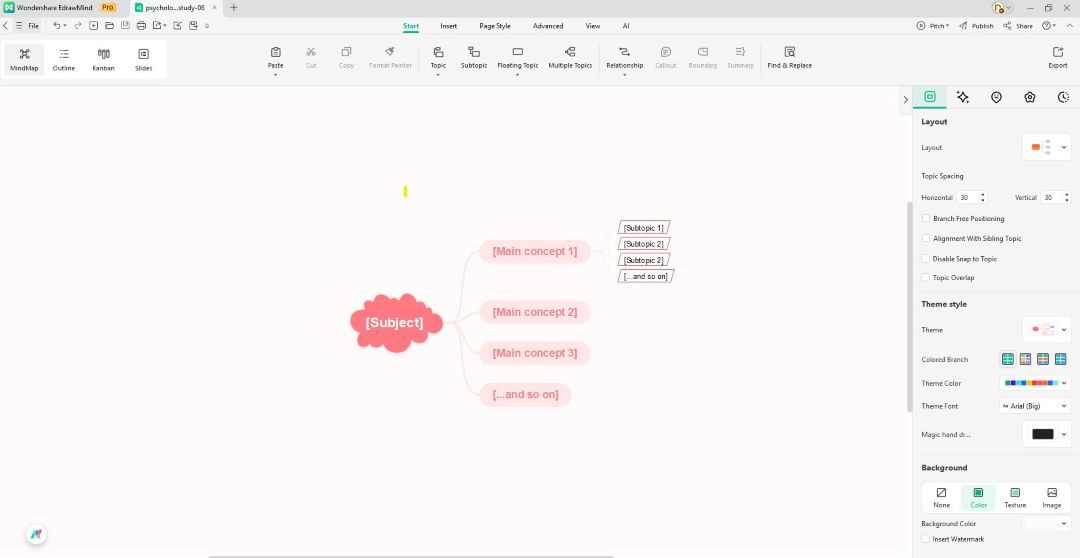
Psychology is rich, fascinating, and deeply applicable. But mastering it demands strategy, not rote memorization.
Use active note-taking, regular quizzes, mind maps, real-world examples, and tackle tough topics early. Leverage tools like EdrawMind to draw example cases and link ideas visually.
With consistency and smart techniques, you’ll find psychology less daunting and more deeply meaningful.
FAQs
-
1. What’s the best way to remember psychology terms and theories?
Instead of memorizing word-for-word, connect ideas through examples or mind maps. For instance, link Pavlov’s experiment to your daily habits—this helps your brain store and recall terms more effectively. -
2. How can I stay motivated when studying complex psychology topics?
Set short goals and reward yourself after finishing a chapter. Join study groups or online psychology communities—discussing topics like cognitive bias or Freud’s theories keeps learning fun and interactive. -
3. Is it better to study psychology by reading textbooks or watching videos?
Both are helpful! Textbooks build strong foundations, while videos and podcasts bring theories to life. Mixing methods keeps your brain active and improves long-term memory. -
4. How do I apply psychology concepts in real life?
Observe people’s actions and emotions around you—psychology is everywhere! Apply what you learn about motivation, learning, or behavior when working with others, making decisions, or understanding yourself. -
5. How can I prepare for psychology exams more effectively?
Start revising early. Create summary notes, take quizzes, and use flashcards to review key concepts. Practice explaining theories in your own words to check real understanding, not just memorization.



